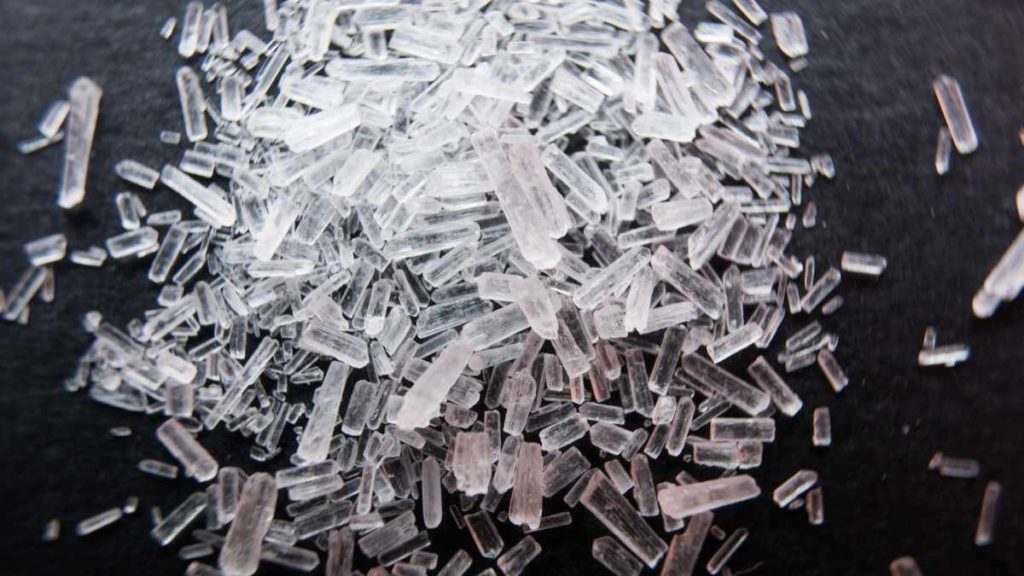What Does MSG Taste Like and Why Should You Care?
MSG is a commonly found taste enhancer that you could come across in many Asian dishes. The acronym MSG stands for monosodium glutamate, which is a substance naturally found in many types of seaweed and fermented foods.
It was first discovered 100 years ago by the Japanese chemist Kikunae Ikeda. It then easily became one of the most used spices in Asian cultures. However, it raises many doubts among Western culture today.
The fact that the glutamate compounds can cause diverse allergic reactions makes people wonder “What does MSG taste like?” and “Should we avoid food with MSG?”
Which mushrooms are most flavorful and what is their taste?
What Does MSG Taste Like?
When asking about the taste of MSG, you might expect a straight answer like “It tastes like mild salt” or “It tastes like fish.” The accurate answer is much more difficult than that. MSG tastes like umami, which is the Japanese word for pleasant flavor.
Umami is often described as the fifth taste of food. Just like when we say that sugar is sweet and black coffee is bitter, we say that MSG is umami.
Some people might refer to umami as savory, earthy, or even meaty. However, others would say that umami just adds a stronger lasting taste to other flavors.
You would find that many Asian restaurants use MSG as a taste enhancer or as a replacement for table salt. That might be the reason behind the constant comparison between salt and MSG.
If you’re still confused, let us help you imagine the taste of MSG alone, or when added to other types of food.
The Taste of MSG Alone
If you’re trying to know exactly what MSG tastes like alone, try taking a pinch of salt and tasting it on its own. What you’re tasting is what we call saltiness. Unlike salt, MSG doesn’t have that impactful salty taste. It has a mild flavor that changes depending on your different taste buds.
MSG is the sodium salt of glutamic acid, which is a type of amino acid that is often found in different types of meats. So, you could also compare it to the taste of meat and fish because they are full of glutamate compounds.

Too Much MSG is Not Good for you 
MSG in Fried Rice is Common
The Flavor MSG Adds to Food
When added to the food, MSG doesn’t give a distinctive flavor like salt. It heightens the taste of food by activating the receptors in your taste buds. This is why you would find it used in many types of canned products and fast foods as a taste enhancer.
Can I Safely Consume MSG?
According to the Food and Drugs Administration (FDA), MSG has no direct health concerns. When consumed in moderate amounts it could be as safe as table salt.
However, many people experience allergic reactions like headaches, numbness, or other physical discomforts.
How can you tell if your meal contains msg?
A non scientific way to see if MSG is in your food – is if you feel really thirsty or start drinking a lot while eating it is often a sign the meal has MSG.
Which ingredients can be used as a substitute for msg?
What is the best substitute for MSG? The top 3 substitutes for MSG are Rosemary, pepper and garlic.
Other good MSG replacements
- paprika
- tarragon
- turmeric
- cumin
Does MSG make food taste good
For man people say MSG enhances the taste or flavor of the food. However, some people do get side effects like a sore head.
What does MSG do for flavor
The key action that MSG does is to enhance the savory, or meaty taste. Often referred to as the umami flavor of foods. LINK
Can you eat MSG straight
No, it is too strong and should not be eaten straight.
What is the Chinese restaurant syndrome
Chinese restaurant syndrome refers to headaches and other symptoms people develop after they eat food with monosodium glutamate (MSG). MSG is often used in Chinese restaurants.
Does Mcdonalds use MSG
As of the time of writing McDonald’s does not use MSG. It is not listed in the ingredients. But other fast food restaurants like Popeyes and Chick-fil-A do list MSG on some other menu items like chicken sandwiches and chicken filets
Why is MSG not good?
Many folks say that MSG causes excessive stimulation of nerve cells. Because of this MSG has been named as a possible excitotoxin. Fear of MSG started back in 1969, when researchers found that injecting doses of MSG into young mice caused neurological effects.
I will get a mild headache if I eat food with MSG.
Is MSG worse than salt?
MSG has 66%t less sodium when compared to normal table salt. This means if you want to reduce your sodium intake, using MSG to flavor your food may reduce the sodium intake on a like-for-like basis with salt.
To Sum Up
Monosodium glutamate is a food additive commonly found in many types of food. You could find it in soups, canned food, frozen vegetables, fast food, and many types of Asian recipes.
The commonly asked question “What does MSG taste like?” comes from the fact that it doesn’t have a distinguishable taste. It could give food a savory or meaty flavor without adding salt or other spices.
After all, it’s a safe taste enhancer that you could enjoy with no worries!
Other flavor enhancers taste – paprika and vegemite explained here.
MSG is sometimes put in ube recipes – Benefits of Purple Yam (Ube) and how it vs taro